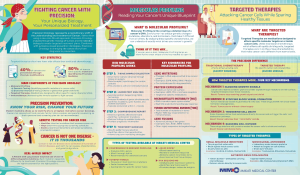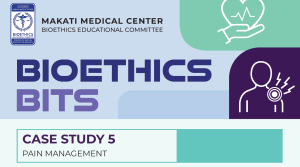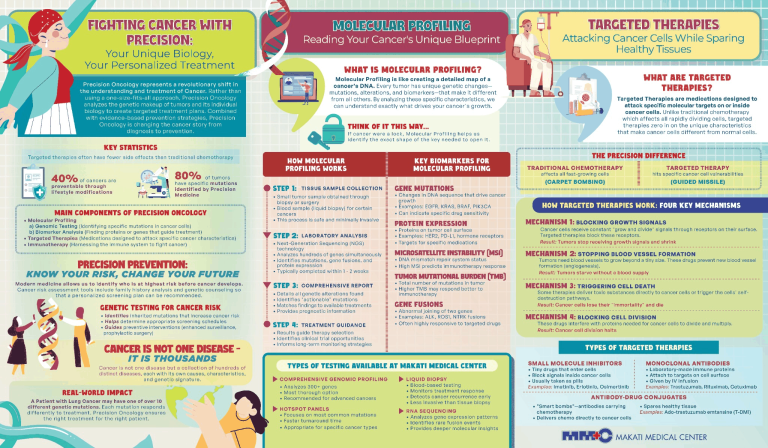To all the teenage girls reading this: Expect your teen years to be an exciting time, a decade of discoveries, firsts, and milestones that prepare you for your gradual transition into womanhood. Here’s when you get to sample a bit of adulting. At 16, you can apply for a student driver’s permit; at 17, a non-professional driver’s license. At 18, you are of legal age to vote.
Thanks to puberty, you will most likely get your period at the age of 12 and buy your first brassiere around the same time. You’ll grow hair and curves in places where there were none, experience mood swings, and take a special interest in boys—or girls.
As a teenager, you are never too young to take charge of your health and well-being—especially when you are armed with information from the experts and are aware of the consequences of your actions. Mae Syki-Young, MD, an Obstetrics & Gynecology Specialist from Makati Medical Center (MakatiMed), empowers young women-to-be as well as adult women alike to make the right decisions with these four (4) tips on reproductive health:
1. Avoid self-diagnosis
Sure, it is faster and less embarrassing to get answers to awkward questions about reproductive health from an online search engine, but nothing beats seeing a specialist about your concerns. “When people feel something, they don’t want to go to a doctor because they prefer to go online,” says Dr. Syki-Young. “Please do not Google, okay?”
A first visit to the gynecologist is recommended in early adolescence or when one becomes sexually active.
“We will ask you about your health history and when you had your period. We also usually do some tests to determine if your reproductive health is normal,” shares Dr. Syki-Young, underlining that the information shared will be completely confidential and will be used only for diagnosis and treatment. “Most of the time, if you are still young, your period is regular, you don’t have severe dysmenorrhea or an abnormal vaginal discharge, and you are not in any kind of pain, we will only perform basic tests. Don’t be afraid to see a doctor.”
2. Be familiar with your period
Remember, not all periods are the same, so it is best to keep track of yours. To determine your menstrual cycle, count from the first day of your previous period to the first day of your latest period. On average, it is about 28 days, though others can have their period after 21 days and still others after 35 days. Periods can run as short as two days and stretch to a week.
“For the first two years of menstruation, it is really possible that it is not regular and it is okay, especially for athletic teens,” reveals Dr. Syki-Young. “But it would do no harm to go to an obstetrician especially if the period has been delayed for six months or more, so we can properly assess if the irregularity is normal or not.”
While some are lucky to be spared from menorrhagia or heavy menses, others must deal with strong, gushing periods each month. “If you are younger, most likely it is just hormonal. But if your periods are heavier compared to before, see a doctor,” says the MakatiMed gynecologist. “I have a lot of patients who dismiss a heavy discharge, then come to me severely anemic.”
Same with dysmenorrhea, or painful menstrual cramps, which can be eased with over-the-counter pain relievers. If it persists or worsens, consult with your doctor, who can run some tests to rule out endometriosis, ovarian cysts, and other issues in the reproductive tract.
Still on the subject of menstruation, there are other options to a traditional sanitary napkin, according to Dr. Syki-Young. A tampon is inserted into the vagina where it absorbs menstrual blood. If fitted right, it is virtually painless, doesn’t get in the way of your physical activities, and eliminates the potential of staining your clothes. A tampon does have to be changed every 4-6 hours to prevent you from getting toxic shock syndrome, a life-threatening bacterial infection.
Menstrual cups are cost-effective and environmentally friendly because they can be reused, which makes them a popular choice among younger users, Dr. Syki-Young observes. These small, flexible cups are folded and inserted into the vagina to collect menstruation. You can keep it on for as long as 12 hours. Just make sure to buy your correct size and wash it thoroughly before every use, the doctor reminds.
3. Protect yourself from STDs and unplanned pregnancy
For around 3,000 girls aged 10-14 in 2023, their teen years marked the beginning of motherhood, according to a study from the Philippine Statistics Authority. It is no exaggeration that the National Economic and Development Authority declared teenage pregnancy a “national and social emergency.”
Yes, a baby is a blessing in any household—but it is best to bring one into the world only at a time when you fully understand the responsibilities of motherhood. Till then, make sure to abstain from sexual activities or use contraceptives during intimate moments—not only to prevent pregnancy but also sexually transmitted diseases or infections (STDs or STIs) that can also have significant impact to your health and well-being. Ultimately, the best type of contraceptive is the one that takes your health concerns and lifestyle into consideration. Discuss your choices with your doctor.
“The act of sex is an expression of how we love a person,” says Dr. Syki-Young, emphasizing the health implications of casual sex not just for teenage girls but for all woman at all ages. “So, if you have no one to share that love with at the moment, it is better to abstain than to go out and look for someone. In fact, multiple random partners only increase your chances of getting STDs. You don’t need to find a partner to be healthy. Abstinence is the best thing you can do for yourself.”
MakatiMed also recommends getting vaccinated against the human papillomavirus (HPV), which can be passed through sexual contact and can cause cervical, oral, and anal cancers. For females, the vaccine can be administered aged 9 to 55, ideally before someone becomes sexually active.
4. Find someone you trust
And we don’t just mean a gynecologist. Whether you are in your teens or twenties, an adult who has your best interest at heart (think older sister, cousin, aunt, or mom) can be the perfect ally. Whoever you choose to be in your corner can help you pick out a doctor, accompany you to your appointments, and offer sensible advice and firm guidance when you need it the most, especially during the often confusing and challenging teenage years.
Article based on the MakatiMed Vodcast episode “You Go Girl! Addressing Women’s Health Concerns that Affect Quality of Life” last March 3, 2021.
For the complete list of Makati Medical Center’s OB-GYN Specialists, click here. You may also reach us via MakatiMed On-Call at (+632) 8888 8999 or at [email protected].
Follow our social media pages for more health-related content and for the latest updates: https://www.makatimed.net.ph/social-media-pages/











